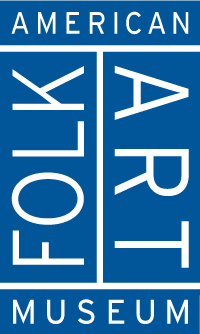Record Details
Hewson-Center Quilt with Multiple Borders
The earliest artists represented in this exhibition experienced the American Revolution firsthand. The strength of their belief in self-determination and resilience in the face of the exigencies of war and a dramatically shifting political-economic landscape established the rugged individualism of the American character early and indelibly. John Hewson was a skilled British calico printer who arrived in America in 1774 with an intimate knowledge of textile printing technology and a letter of recommendation written by Benjamin Franklin, whose encouragement of mechanical genius was well known and who ardently advocated for equal opportunities of self-improvement for artisan tradesmen. In defiance of the British ban on domestic manufacture of printed textiles, Hewson set up a printworks and bleaching yard in an area outside Philadelphia and advertised that he had patterns for “printing calicoes and linens for gowns, &c., coverlids, handkerchiefs. . . .”
Hewson joined the Philadelphia militia and was quickly captured by the British. He escaped and reestablished his print business, though in straitened circumstances, and was honored for his ardent support of American independence and industry in 1788 by representing the Pennsylvania Society for the Encouragement of Manufactures and the Useful Arts in the Grand Federal Procession, which marked the ratification of the United States Constitution. Today he is best known for block-printed squares featuring a vase overflowing with flowers and sheaves of wheat and surrounded by motifs of butterflies and birds that typically were used as the center medallions of quilts such as this example.
Stacy C. Hollander, "Hewson-Center Quilt with Multiple Borders," exhibition label for Self-Taught Genius: Treasures from the American Folk Art Museum. Stacy C. Hollander and Valérie Rousseau, curators. New York: American Folk Art Museum, 2014.
Object information is a work in progress and may be updated with new research. Records are reviewed and revised, and the American Folk Art Museum welcomes additional information.
To help improve this record, please email photoservices@folkartmuseum.org



















